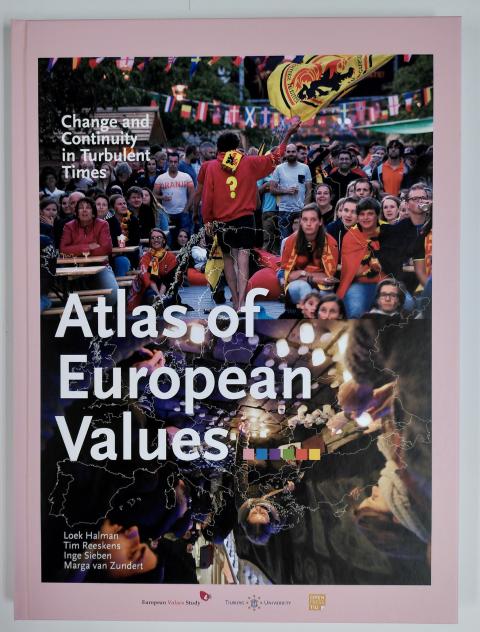European Values Study
Do Europeans have shared values? Are those values subject to change? And if so: in what direction? The third edition of the Atlas of European Values attempts to answer these questions. Published once every nine years, the Atlas provides an impressive overview of the development of Europeans' values over the years in the areas of national and European identity, prosperity, migration, sustainability, solidarity, and democracy.

Research of the shared values of Europeans (pictured above)
In the Atlas of European Values: Change and Continuity in Turbulent Times, similarities and differences in a wide range of values between residents of 35 European countries are conveniently mapped out. The underlying data comes from the European Values Study. For more than 40 years, data has been collected in various countries on the development of values within and between countries, of inhabitants of all ages and backgrounds. The Atlas provides insight into the similarities and differences between countries on a wide range of topics within the themes mentioned above. The latest edition of the Atlas appeared in May 2022 and was presented in Brussels by sociologists from Tilburg University.
The data underlying the Atlas have been collected in the European Values Study (EVS) since 1981. More than 35 countries now participate in the study, from Iceland to Azerbaijan and from Portugal to Norway. Tilburg University coordinates this study from the Sociology Department at the Tilburg School of Social and Behavioral Sciences. The EVS data form the basis of interactive tools and educational materials for secondary schools as part of the Erasmus+ project European Values in Education (EVALUE).
People's views within countries appear fairly stable, but the differences between countries are large. For example, the percentage of people who subscribe to the statement that democracies are not good at maintaining order is between 13-22 percent in Western Europe, compared with 42-60 percent in most of the former Eastern Bloc countries.
More about history and academic heritage
The Tilburg University academic heritage is a very diverse set of archives, visual materials, collections, devices, recorded stories, et cetera that relate to the history of the university.